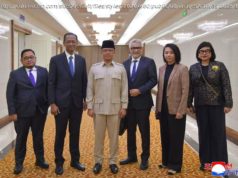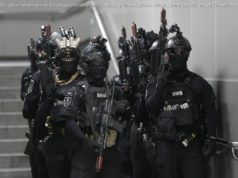Array
SEOUL | Talk about a triple whammy.
In 2019 “Parasite” became the first foreign-language film to snag a “Best Picture” Oscar. In 2020, boy band BTS dominated the music charts and drew comparisons to The Beatles. And a year later, the culture-shaking TV series “Squid Game” became the most-watched show ever on Netflix.
All three hail from South Korea, a nation that has set global benchmarks for “zero-to-hero” surges in both hard and soft power.
South Korea and its cultural output were virtually unknown in international society before the Korean War. The devastated country was subsequently seen as a basket case in the 1950s, as an unlovely bastion of metal-bashing in the 1960s and 1970s, and as a hot spot of fiery political protests in the 1980s and 1990s.
Millennial South Korea, however has become a byword for cool — with a capital “K.” Credit goes to “Hallyu” (“Korean Wave”), a term coined by a Chinese journalist in 1999 to describe an extraordinary outpouring of domestic pop-culture K-drama, K-pop, K-film, K-gaming — that was just beginning to swamp Asia.
Since then, “Hallyuwood” has swept the world, generating outsized artistic influence and attention for a country of just over 50 million people.
SPECIAL
COVERAGE: Celebrating 70 Years: The United States & South Korea Alliance
“Hallyu has been instrumental in enhancing Korea’s national brand on the global stage,” said Yang Sun-mook, former government advisor who promotes South Korean “silver” fashion globally.
It provides a needed identity when your country is sandwiched between two cultural superpowers in China and Japan.
Seoul officials are “riding the coattails of Hallyu because they understand that soft power is better than hard power when you are a small country between the world’s second and third largest economies, both with much larger populations,” said CedarBough T. Saeji, who teaches Korean and East Asian studies at Pusan National University.
“A ‘Made-in-Korea’ tag once conjured up images of poverty or, in extreme cases, despotic leaders and nuclear missiles,” added David Tizzard, who teaches Korean studies at Seoul Women’s University “Now, Korea is not just winning the hearts of people though its cultural content, it’s also writing its own national identity and securing legitimacy in its struggle with the North.






